Two days of world-class content, delivered by some of our field’s top UX Researchers.
Tracks
THURSDAY JUNE 25, 2020. 11:00AM - 5:00PM EST.
As researchers we have a lot in common: a natural curiosity, the ability to build relationships with others, and the drive to think critically about new ideas. At the same time, we have varied experiences, interests, and professional goals that make us all unique.
From discussing what it’s like to influence research as a leader, to research being done on the frontiers (robots, anyone?), there’s a track of content for everyone.
Track One:
Research Foundations
Every year, #UXRConf has a track of talks dedicated to people who are beginning their journey in research. This is that track. Talks will cover methods and how to use them, commonly used frameworks in research, and other topics tailored to someone breaking into the field or growing their research toolkit.
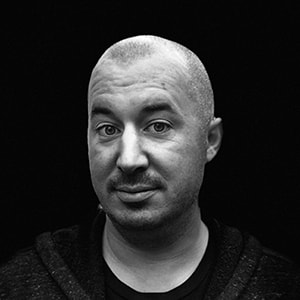
Banish Your Imposter: Looking back at where UX research began, where it's going, and why you belong
Noam Segal, Director of User Research, Wealthfront
Talk details
Banish Your Imposter: Looking back at where UX research began, where it's going, and why you belong
Noam Segal, Director of User Research, Wealthfront

Talk abstract
There are no UX Research methodologies, processes, or tools that’ll set you up for success as an early-career researcher if you feel like an imposter. In this thought-provoking talk, Noam will take us on a journey from the beginnings of UX research in the mid-20th century, all the way to the possible future of the field in the coming decades. Who were the first UX researchers? Who will be the “modern researchers” who continue to develop groundbreaking products? And what can we gather about who belongs in our field as we look far back into our past, and far out into our future?
Speaker Bio
Noam grew up in Israel on a diet of hummus and falafel. He moved to the US in 2012 to get his PhD in psychology from the University of Illinois at Urbana Champaign, and a second PhD in Pizza sciences from Chicago. Upon completion of his dissertation, Noam moved to Silicon Valley where he's worked for Airbnb, Intercom, and these days at Wealthfront as Director of User Research. He's married with two kids, a pup, a cat, and an empty aquarium because that didn't work out so well.

What Design Ethnography Can Do For You: Connecting decision makers to users
Yoanna Dosouto, User Experience Researcher, Google
Talk details
What Design Ethnography Can Do For You: Connecting decision makers to users
Yoanna Dosouto, User Experience Researcher, Google

Talk abstract
During this talk, the speaker will share how design ethnography and a combination of other traditional research methods helped shape the mobile roadmap and boarding process for a North American airline. Attendees will be introduced to the design ethnography method and offered some practical tips to get them off and running. The author will illustrate how the use of design ethnography produced significant success in a highly regulated environment bound by The Federal Aviation Agency (FAA) rules. This case study will share how the team was able to secure investment and support to create a mobile application that effectively bridged the gap between business motivations and users needs. Using Design Ethnography, the in-house UX team was able to radically shift the mobile strategy by connecting senior leadership to their users. This was primarily achieved using artifacts produced from the design ethnography effort.
Speaker Bio
From flight attendants and customer service agents, to medical professionals and cloud developers, Yoanna is passionate about understanding and building experiences for enterprise and highly specialized users. For the past three years she has been part of the user experience research team at Google working on building best in class experiences for the Google Cloud Platform users. She developed her skills as a User Experience Researcher through the Human Centered Design and Engineering program at the University of Washington and hundreds of hours of fieldwork. Now based in Seattle, but originally from Cuba she enjoys being a wife, a UXer, and an avid world traveler.

The Ethical Researcher's Checklist
Alba Villamil, User Experience Researcher, Independant Consultant
Talk details
The Ethical Researcher's Checklist
Alba Villamil, User Experience Researcher, Independant Consultant

Talk abstract
As the tech industry matures, organizations are incorporating more user research into their product development cycles. And as research practices evolve to fit this demand, product teams face major ethical challenges. In an age where user data is as abundant as it is personal, how can researchers balance business needs with protecting users’ safety, autonomy, and privacy? In this talk, Alba Villamil will discuss the ways in which product teams, in their quest to learn about users’ needs and behaviors, can violate fundamental ethical research principles. She will then provide concrete strategies researchers can use to a) recognize potential ethical violations in their research plans, b) minimize the impact of unethical decisions in the field, and c) promote ethical practices among stakeholders.
Speaker Bio
Alba N. Villamil is an independent User Experience Researcher who specializes in designing for the social sector. Her projects focus on underserved populations such as refugees, low-income parents, and domestic violence survivors. In addition to working with community organizations, she has also worked on projects with the Harvard Kennedy School and Rochester City School District.
Putting your Research to Work
Alisha Kassam, Sr. Designer, Shopify
Talk details
Putting your Research to Work
Alisha Kassam, Sr. Designer, Shopify
Talk abstract
As user research matures its practice within organizations new challenges present itself to practitioners. It’s no longer sufficient to write a findings report and circulate it over Slack; researchers need to put their research to work by carving out a strategy that will drive impact throughout their organization. Turning findings into meaningful, lasting insights that are actionable for teams will be the specialized skill researchers can lend product teams as the UX discipline continues to grow and evolve.
Speaker Bio
Alisha is a service designer with a deep interest in how design can be used as a tool for innovation and organizational change. Over the past 9 years she has worked with large international brands and clients, spearheading research, design and strategy across various business and product initiatives. Today, she is a professor and course creator at York University, and a Senior Designer at Shopify where she uses her service design background to help independent businesses thrive.
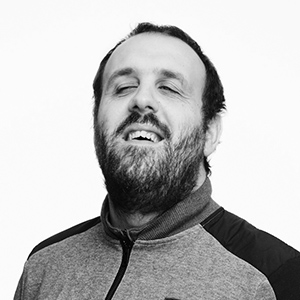
What Not To Do In Accessibility Research
Samuel Proulx, Community Manager, Fable Tech Labs
Talk details
What Not To Do In Accessibility Research
Samuel Proulx, Community Manager, Fable Tech Labs

Talk abstract
Engaging people with disabilities in the research, design, and testing process is an essential part of any company’s digital accessibility efforts. However, while plenty of work has been done to create best practices for research and testing methodology, there is little to no information available when it comes to best practices for recruiting, engaging, and building a community of people with a disability to take part in this research.Drawing from the community at Fable Tech Labs, this talk will detail some of the mistakes made when establishing inclusive development processes. In this presentation, we will go through each stage of engaging people with disabilities in research and share some of our lessons learned.
Speaker Bio
As well as being a frequent participant in numerous research studies (both offline and online), Samuel Proulx has managed online communities in various spaces, from mailing lists to IRC to Reddit, for 18 years. He currently works as the Community Manager for Fable Tech Labs, using his expertise in community building and advocacy to help them build an inclusive team of people with disabilities from all walks of life, which spans the United States and Canada. Completely blind himself, he knows and values the importance of accessibility and diversity in all aspects of life, especially online. When not community building, Sam enjoys reading as many science fiction novels as he can get his hands on, and imagining how the future can be more inclusive and accessible for everyone.
Track Two:
UXR Team Of One
If you’ve ever been the sole researcher in a company of any size, you know that you face no shortage of challenges. There’s so much work to be done, so many stakeholders to be managed, so many hearts and minds to be won over, how can you possibly make it work? In this track, we’ll uncover how to set yourself up for outsized impact as a research team of one.

A 30-60-90 Day Plan for Making an Impact with your New or Existing Research Practice
Snigdha Diehl, Sr. UX Research Lead, Bitly
Talk details
A 30-60-90 Day Plan for Making an Impact with your New or Existing Research Practice
Snigdha Diehl, Sr. UX Research Lead, Bitly

Talk abstract
Starting a user research practice in an organization can be daunting, exciting, and eye-opening experience. In this talk, Snigdha will present a 30-60-90 day (and beyond) plan for researchers looking to achieve impact through a new or existing research practice. Snigdha will cover ways to do work that matters, score quick wins, and balance long-term strategy with tactical work. She will provide key takeaways through real life examples, including how to generate excitement and partner with teams new to research, scale research despite resource challenges, and impact product strategy, design, and success measures.
The first thirty days will focus on listening and engaging with potential partners and leadership, to avoid early pitfalls. Sixty days will include scoring quick wins, by creating partnerships with “on the fence” colleagues by exploring their comfort zones and taking them along for the ride. Ninety days will cover establishing repeatable processes to scale, including creating and growing a research panel, and crafting and communicating a vision. Finally and most importantly, as being a change-maker is hard work, and the talk will conclude with a discussion on preventing burnout.
Speaker Bio
Snigdha is a researcher with over 10 years of experience in UX and cognitive neuroscience research. She founded the User Research practice at Bitly in NYC. Her impact as a UX Research team of one is rooted in listening with empathy, being adaptable, and forming effective partnerships with cross-functional teams that are new to research. At Bitly, she gathered insights from over 200 users within the first year to shape strategy for a new product area, inform the design of core workflows shipped, and impact key results. In her former role as the first UX Researcher at FactSet, she created frameworks and processes used by the team, and played a key role in scaling research to three departments and over ten products. Snigdha arrives at UX with a deep understanding of human behavior and cognition fostered by her Ph.D. training.
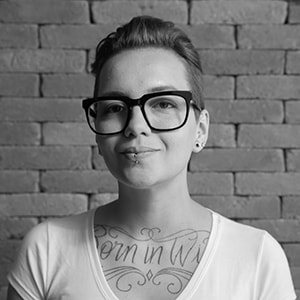

Doing Foundational Research with an Impossibly Diverse Audience
Leticia Ratkiewicz, UX Researcher, Nubank and Lucas Terra, Lead Product Designer, Nubank
Talk details
Doing Foundational Research with an Impossibly Diverse Audience
Leticia Ratkiewicz, UX Researcher, Nubank and Lucas Terra, Lead Product Designer, Nubank


Talk abstract
Whether we like to admit it or not, our customers are more diverse than we think they are, and you don’t need a lot of users to have a diverse customer base either. To make matters more complicated, if you are working at a high-growth company, the demographic, behavioural, and cultural makeup of your customers are changing faster than anyone on your team can keep track of.
So when it comes to starting a new foundational research project, where do you start? How do you make sure that you focus on a group of people that are both representative of your broader customer base and meaningful to the business’ goals?
In this talk, Leticia and Lucas will cover a framework they’ve developed that leverages behavioural data you already have on your customers to develop meaningful customer segments to target for foundational research, so you can deliver on key business outcomes.
Speaker Bio (Leticia)
Leticia Ratkiewicz is a mixed-methods UX Researcher at Nubank, based in São Paulo, Brazil. She has 5 years experience on the UX field, transitioning from design through full-time research. She’s earned her Master’s from Pontíficia Universidade Católica de São Paulo.
Speaker Bio (Lucas)
Lucas Terra is a product designer at Nubank. His background covers a breadth of contexts (industries, large and small size companies, consulting and internal) and disciplines (industrial, digital and service design).
Currently Lucas is leading the design team for Nubank’s credit card and engaged in nurturing a strong design culture during a hyper-growth scenario on a 70+ team of visual, product designers and UX researchers.
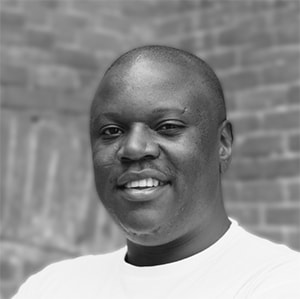
The Five Dysfunctions of a UXR Team of One (and How to Overcome Them)
Roy Opata Olende, Sr. Research Operations Program Manager, Zapier
Talk details
The Five Dysfunctions of a UXR Team of One (and How to Overcome Them)
Roy Opata Olende, Sr. Research Operations Program Manager, Zapier

Talk abstract
Have you ever felt like you’re stuck in a solo researcher hamster wheel, cranking out lots of work but going nowhere? You’re not alone: the UXR team of one role is plagued with inherent dysfunctions that only become obvious over time.
In this practical talk, Roy will lay out the five obstacles that prevent solo researchers from having a more significant impact on their organizations. You'll learn about how to approach research as a strategic function, the importance of business metrics, the critical role of consistent communication, how isolation affects solo researchers, and why task omissions are just as important as priorities.
At the end of this session, you'll walk away with ideas that you can implement to become a better UXR team of one.
Speaker Bio
Roy has been involved in user research and service design for the past eight years. He currently runs the Research Operations practice at Zapier. Prior to this role, he led the UX research practice at Buffer.
When not working or hanging out with his wife and three young boys, he can be found obsessing over Arsenal, his favourite football (soccer) team.
Roy hails from Kenya and currently resides just outside of Toronto.

The Replication Crisis: Why researchers should care and what we can do about it
Sarah Wittman, Director of Design Research, RBC
Talk details
The Replication Crisis: Why researchers should care and what we can do about it
Sarah Wittman, Director of Design Research, RBC

Talk abstract
Over the past decade, academics in social psychology have been wrestling with a problem - when they tried to reproduce studies that had been published in academic journals, a worrying number weren't seeing the same results. This is not merely an “academic” issue. In business, there is rarely the chance to repeat a study, but there is little reason to believe UX research is immune from this problem. The UX Research industry can learn from what was uncovered in social psychology, and create guardrails to increase our confidence that our work will stand the test of time.
Speaker Bio
Sarah is a Director of Design Research at RBC. She focuses on scaling the impact of the design research, and supporting design researchers embedded in cross functional teams across RBC Digital. A lifelong reader and collector of facts, she loves the opportunity to find parallels between disparate industries and situations.
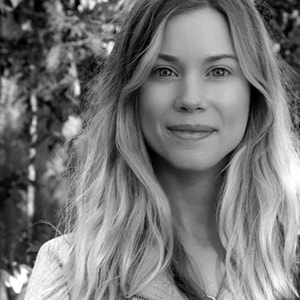

Using Blueprint Fidelity to Focus Teams on Impactful Ideas
Kira Cassels, UX Researcher, Indeed.com and Kathryn Brookshier, UX Researcher, Indeed.com
Talk details
Using Blueprint Fidelity to Focus Teams on Impactful Ideas
Kira Cassels, UX Researcher, Indeed.com and Kathryn Brookshier, UX Researcher, Indeed.com


Talk abstract
Teams are often sure of their ability to determine the right thing to build, but often only look for feedback on how to build the thing right. Researchers need to help teams reframe their thinking around figuring out what the right thing is by getting buy-in for research at early stages of product development.
As it stands today, it can be difficult for UX researchers to secure buy-in from stakeholders to do a traditional concept test - a method well suited for early-stage research. Regardless of if a researcher has secured interest from some team members, they may still be unable to get stakeholders to care about the outcomes.
Enter concept testing with blueprint fidelity. Blueprint fidelity elegantly solves for common pushback: it has the fidelity of a paper prototype with the polish of a finished product, it focuses teams on solving problems, and gets the team to understand which concepts have the most promise early on, before they get attached to an idea that has little potential.
Speaker Bio (Kira)
Kira Cassels is a qualitative UX Researcher at Indeed.com, focusing on improving the job seeker experience. She is passionate about guiding and empowering teams to be inquisitive about their users, connect to their needs, and to develop solutions that work. Kira received her M.S. in Human Centered Design and Engineering from the University of Washington.
Speaker Bio (Kathryn)
Kathryn Brookshier is a UX Researcher at Indeed in Seattle, WA who incorporates quantitative and qualitative methods to drive product decisions that positively impact users. She is a Medium author, mentor in the Seattle chapter of Hexagon UX, and a board member of Puget Sound SIGCHI. Kathryn received her B.S. in Interaction Design from Franklin W. Olin College of Engineering and M.S. in Human-Centered Design and Engineering from the University of Washington.
Track Three:
UXR Frontiers
The overwhelming majority of UX research takes place on one of two media: the desktop web browser and the mobile app. But today, a small group of enterprising researchers are tackling challenges that most of us have never considered. Join this track to learn more about doing research on the frontiers of VUIs, autonomous robots, and exercise equipment.

Replicating the Workout Experience for Research
Andrea Sutyak, UX Researcher, Peloton Interactive and Beth Wendt, Sr. UX Researcher, Peloton Interactive
Talk details
Replicating the Workout Experience for Research
Andrea Sutyak, UX Researcher, Peloton Interactive and Beth Wendt, Sr. UX Researcher, Peloton Interactive

Talk abstract
It is critical for researchers to recreate organic moments of interactions during user research sessions. The Peloton Product team strives to replicate an authentic workout experience during user research sessions to capture insightful and meaningful feedback. Simply showing a stationary user a clickable prototype on a desktop cannot fully envelope the user into a genuine workout experience. Researchers will miss out on insights caused by the altered state of exercise: feelings of euphoria from endorphins, sweat hitting the tablet screen from an elevated respiratory system, cognitive load of movement coupled with mentally focusing on a screen.
This talk will uncover some of the unique testing variables the team encounters when exercise is a requirement to a test plan. How do we handle self-conscious participants? What do we do when participants are too out of breath to voice their attitudinal feedback? Many of the challenges have transferable implications that researchers outside of fitness can take back to their research teams. Finally, we will provide case studies of recently released products and the thought process that went into our test plans.
Speaker Bio (Andrea)
Andrea (pronounced Ann-dree-uh) was the first User Researcher hired at Peloton in November, 2018. Since then the User Research team has expanded to a team of six talented and tenacious Researchers. The team supports the innovation, iteration and optimization of Peloton Products (software and hardware!) by understanding how users interact with the Bike, Tread, mobile apps, TV apps and new Products through qualitative and quantitative research methods. Andrea is passionate about creative and experimental research techniques that extend outside of traditional usability testing.
Prior to Peloton, Andrea worked in healthcare research where she planned, executed and presented research studies that optimized pharmaceutical, medical device and diagnostics clients’ strategies. She holds a Master of Science in Marketing Research and Insights from Temple University, a Certificate in User Experience Design from New York University (NYU) and a Bachelor of Science in Health Policy & Administration from Penn State University.
Andrea takes at least three Peloton classes a week; she even has a bike in her studio apartment. In her spare time, Andrea enjoys writing comedy and keeping a pulse on the New York boutique fitness scene.
Speaker Bio (Beth)
Beth is the second User Researcher hired by Peloton in July 2019. See Andrea Sutyak’s bio for more information on all the cool things that Peloton’s growing research team is working on!
Beth is a California native who moved with her Brooklyn-bred husband to New York City in 2017. Beth was exposed to research at any early age by her father (a Professor) and she’s been passionate about it ever since! Apart from a brief stint in event coordination, Beth’s career has focused on human-centered research.
Before joining Peloton, Beth worked in user research at Audible (and still listens to audiobooks daily); prior to that she worked in hardware human factors research at Apple. This unique blend of research experience - encompassing software, hardware, and content research - has been instrumental in growing Peloton’s product research practice. Beth holds an MS in Human Factors/Ergonomics from San Jose State University and a BS in Cognitive Science from UCLA.
When Beth’s not working, you can find her exploring NYC’s growing craft brewery scene, trying new fitness classes (both Peloton and otherwise) or binging the latest true crime docuseries.

Carrying Out Robotics UX Research: Building the plane while you fly
Ellen Francik, Head of UX, Postmates X
Talk details
Carrying Out Robotics UX Research: Building the plane while you fly
Ellen Francik, Head of UX, Postmates X

Talk abstract
Hardware is hard, and robots are harder. Robotics products have a research rhythm – and constraints – different from digital products you may have worked on. Moreover, if you are a research team of one or two, you’ll end up studying everything from product-market fit to ergonomics to social interaction.
Each consumer-facing robot is a novel product that needs to find its target market. Prototyping and testing require hardware and software innovation going beyond existing digital tools for mobile and web app design. And if your robot is rolling along in public, you’ve got to research the experience with passers-by who never signed up to have a robot in their lives. Learn how to manage robotics UX research – from product concept to industrial design to rich social interaction.
Speaker Bio
Ellen leads UX research at Postmates X, the robotics branch of delivery company Postmates. She's working on Serve, a socially aware sidewalk robot now delivering tasty food in busy cities.
Previously, Ellen led research at Mayfield Robotics (a Bosch startup) for Kuri, an award-winning – and adorable – home robot. She's worked on UX research and design for companies large and small and taught dozens of courses internationally. She can't wait to share new stories about humans, robots, and designing for the unexpected. #TheFutureIsNow #LoveARobot


The Future of UXR: Life After COVID
Maia Ottenstein, Design Research and Process Design Manager, Thomas Jefferson University Hospitals and Remi Gurak, Design Researcher, DICE Group
Talk details
The Future of UXR: Life After COVID
Maia Ottenstein, Design Research and Process Design Manager, Thomas Jefferson University Hospitals and Remi Gurak, Design Researcher, DICE Group


Talk abstract
The COVID-19 pandemic will not only leave its mark in history, but also on our culture. How will it change the way we practice UX research and design? Our time in self-isolation provided opportunities to reflect on how we were operating, as well as experiment and learn new ways to live and work. In this talk, Maia and Remi delve into what we’ve collectively learned, including best practices for researchers, and made some predictions about the future of UX research. How can we yield the best outcomes? What do we want our work lives to look like? What is best for our organizations?
Speaker Bio (Maia)
Maia Ottenstein is a passionate problem solver and designer for social impact. As the Manager for Design Research and Process Design in the DICE Group at Thomas Jefferson University Hospital, Maia leads a team of researchers and designers to create innovative solutions that improve efficiency, safety, and experience for healthcare organizations and their patients. Originally trained in product design, she considers the full life cycle of a project from the perspective of both the end users and the producers. In her free time, Maia can be found wandering outdoors or mixing a crafted beverage.
Speaker Bio (Remi)
Remi Gurak is a researcher and designer passionate about tackling challenging problems through a human centered approach. She believes that crafting innovative, intelligent and accessible solutions can change our world.
Remi works as a Design Researcher in the DICE Group at Thomas Jefferson University Hospital where she spends her days working closely with patients and staff to understand their problems and build intuitive products that improve their day to day lives.

Researching the Command Line Interface
Atikh Bana, Product Designer, Datadog
Talk details
Researching the Command Line Interface
Atikh Bana, Product Designer, Datadog

Talk abstract
How do you research an experience you don’t understand well? When the only two variables to an experience are syntax and semantics, how do you modify research methods to maximize user insights?
This talk explores research in the original computer interface, the limited, but powerful, command line interface (CLI), which is still used by millions of developers worldwide. We’ll also explore what researching CLIs can teach us about doing UX research in any other environment.
Speaker Bio
Atikh Bana is a Product Designer at Datadog, where he is responsible for researching developer needs/expectations, relevant developer tools, and designing end to end experiences for highly technical products, which include graphical and command line user interfaces. Prior to Storj Labs, he worked for an IT consultancy in the Midwest, supporting companies like Herman Miller, Steelcase, and Thomson Reuters. He currently lives in New York City and likes cheesecake, a lot.
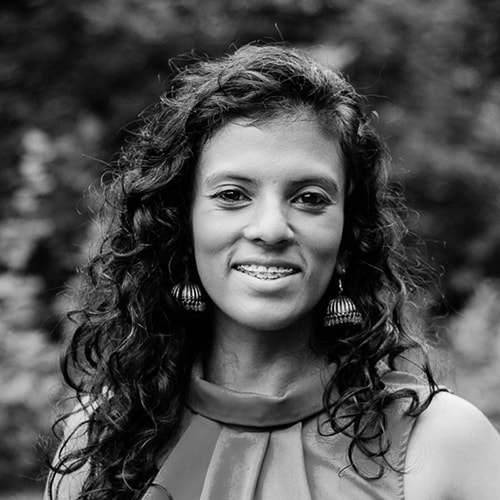

How Design and Research Work Together to Define Cutting-edge Experiences in Mixed Reality
Ananthi Rangarajan, Sr. UX Designer, Microsoft and Peter Alderks, Design Researcher, Microsoft
Talk details
How Design and Research Work Together to Define Cutting-edge Experiences in Mixed Reality
Ananthi Rangarajan, Sr. UX Designer, Microsoft and Peter Alderks, Design Researcher, Microsoft


Talk abstract
With its introduction, Mixed Reality brought along unexplored use cases, new interaction models and unique questions that enveloped the technology. Researching and Designing for MR requires people to leave behind assumptions and workflows well understood by 2D experiences and reintroduce themselves to new user expectations. For the researcher, designer or a manager stepping into the world of MR, this talk will set the stage and provide a bird’s eye view for what it takes to orchestrate an end to end process of researching and designing for new technology.
Using Hololens as a case study, the talk will cover use cases, explore how existing methodologies can be adapted and outline focus areas that are considered when researching futuristic technology. Designing for new experiences requires a synergic partnership between research and design with the parallel workstreams interacting and influencing each other. To ideate and envision for explorative design, the talk exposes the audience to adaptive workflows, contextual influences, prototyping methods and key challenges encountered along the way.
The talk will showcase a concrete baseline for strategic research and design methodologies that can be used to explore this new world of Mixed Reality.
Speaker Bio (Ananthi’s)
As a Senior Designer at Microsoft, Ananthi focuses on bringing curiosity, empathy and play as driving forces to every creative endeavor. She works with clients to bring out the human truth and ensure its continuity through the crafted experience. She has shown design leadership in a variety of fields ranging from Healthcare, Community Engagement, Machine Learning to currently bringing her voice to the world of Mixed Reality.
Speaker Bio (Peter’s)
Peter has been involved in research for almost 20 years. With a background in neuroscience and behavior in fish he transitioned into UX research to have impact on technology people use every day. As a user researcher, Peter is interested in improving the user experience with innovative and cutting edge technologies while working in problem spaces where diverse and creative approaches are critical. Peter’s UX journey began in Xbox taking on difficult questions such as how companies can make online gaming safer for everyone. He helped define and hone the process for conducting rapid iterative usability tests throughout the Windows organization. As the lead researcher for other studios and products he’s championed the use of multimethod research to better understand user needs and motivations. Currently, Peter works in the mixed reality space for HoloLens and mobile devices.
Track Four:
The Science Behind UXR
Many of the most experienced UX researchers in the workforce today have one thing in common: a background in scientific research. In fact, much of the academic work done before the transition into UX research has had a profound impact on the development of the field. Here, we’ll take a deep dive into talks from industry UX researchers who use their knowledge gained from graduate research in fields like neuroscience, cognitive psychology, anthropology and more to be better researchers.
Combating Memory Limitations through Simultaneous Triangulation
Colette Kolenda, User Researcher, Spotify
Talk details
Combating Memory Limitations through Simultaneous Triangulation
Colette Kolenda, User Researcher, Spotify
Talk abstract
Human memory is flawed, and as such, relying solely on participant’s memory can jeopardize the reliability of our insights. Much of qualitative research done today is based on asking participants to recall past experiences, though we don’t often think about the limitations to this kind of data collection.
This talk explores how memory biases can impact our research and identifies strategies for overcoming these limitations through mixed methods. We will cover a case study from my research at Spotify to highlight how simultaneously triangulating different methods—including a qualitative diary study along with behavioral data analysis—allowed us to avoid memory biases and gain high-quality insights.
Speaker Bio
Colette Kolenda leads strategic, mixed methods research for Spotify Free. She triangulates quantitative and qualitative methodologies to enable data-driven product and business decisions. Before Spotify, Colette conducted decision-making research in Dan Ariely’s Behavioral Economics Lab at Duke University. She holds a B.S. in Neuroscience from Duke University.

We Are All Users: The importance of identification in user research
Carrie Heffner, User Experience Researcher, Mailchimp
Talk details
We Are All Users: The importance of identification in user research
Carrie Heffner, User Experience Researcher, Mailchimp

Talk abstract
“You are not your user” has long been the UX researcher’s mantra. But it’s had a problematic side effect, which is that we’ve inadvertently taught our non-researcher colleagues to “other” our users. Too often, companies view users as mysterious beings they have seemingly little in common with. In this talk, Carrie will explain how concepts from classical rhetoric explain the persuasive nature of all products, why we must identify with users to persuade them to use our products, and how we can do this in an ethical manner.
Speaker Bio
Carrie is a UX researcher at Mailchimp with a background in content strategy. She holds an MA in Rhetoric & Composition from Georgia State University, where she explored theories of writing and persuasion and how they inform online communication. At Mailchimp, she combines user research with her love for writing and strategy to help build more persuasive and successful products.

TL;DR: Testing copy
Jennifer Siedjak, Sr. UX Researcher, Redbox
Talk details
TL;DR: Testing copy
Jennifer Siedjak, Sr. UX Researcher, Redbox

Talk abstract
Nailing down the right copy for an interface can be a challenge. And nailing down the right amount of copy can be equally tricky. Some people say, “Users don’t read” – but is this true?
This talk will explore the classic cognitive psychology research behind how people read and process text, taking a dive into the reading comprehension literature. You will learn how cognitive psychology research methods translate into testing copy in an applied UX research setting – you might be surprised!
We’ll also take an in-depth look at some practical UXR case studies. The speaker will share how her organization has used different UX research approaches to assess users’ comprehension of copy and to drive design changes. This talk will also provide an overview of qualitative and quantitative UXR methodologies for testing copy. You’ll receive guidance on how to pick the right approach to answer your research questions.
You’ll leave with a practical UXR toolkit to tackle any copy debate in your organization – as well as the cognitive psychology “why” behind these methodologies.
Speaker Bio
Jennifer Siedjak spearheads the UX research efforts at Redbox as a UX Research Team of One. (Redbox is one of the biggest entertainment companies in the US. There are more Redbox kiosks in the US than McDonald's and Starbucks combined!)
Before getting into UX, Jennifer conducted research at Northwestern University in Dr. David Rapp’s Reading Comprehension Lab. Here, she conducted cognitive psychology studies on topics ranging from refutational texts to perspective-taking. She presented her research at regional and national conferences. Later, she worked at Rush University Medical Center, helping with clinical trials for new PTSD treatments – and getting a couple of peer-reviewed journal articles under her belt.
About five years ago, Jennifer made the pivot to UX Research because she wanted to conduct applied research – and UX was the perfect blend of her interests in cognitive psychology and design. For her first UX Research gig, Jennifer consulted for Fortune 500 companies in the tech, pharma, finance, e-commerce, and auto industries. Now at Redbox, she conducts research across multiple products: kiosk, mobile app, website, and apps on Smart TVs and streaming sticks. She uses UX insights to help bridge the gap across the omni-channel experience.
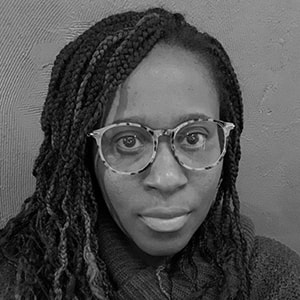
The Impossibility and Irrelevance of Empathy
Sekai Farai, User Researcher, Independent Research Consultant
Talk details
The Impossibility and Irrelevance of Empathy
Sekai Farai, User Researcher, Independent Research Consultant

Talk abstract
How might the presumption that we’re equally capable of deploying empathy handicap what’s possible in research and design? Let’s look at the function and limits of empathy in research, design and decision making today and imagine together what the field of research might look like if we consider the impossibility of empathy?
Speaker Bio
Research can save the world. It’s this earnest belief that powers Sekai Farai, an anthropologist and qualitative researcher in her 15 year career in service and product design. Funded to study the NYC startup ecosystem in the early 2000s, Sekai parlayed that experience into working with tech startups in-house and as a consultant, translating user knowledge into actionable product direction. Sekai Farai specializes in ethnographic and experimental methodology to uncover hard-to-know insights from hard-to-reach users for global clients across tech, CPG, manufacturing and social impact. Founder of research studio, humankind re/design, Sekai Farai is on a mission to interview and learn from everyone who wants a world designed with their needs in mind.
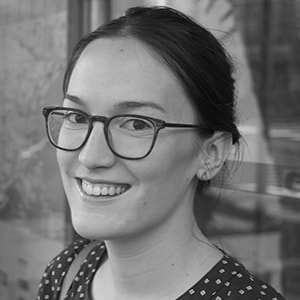
Understanding and Measuring User Emotions: The missing puzzle piece
Lara Vujovic, UX Researcher, TripAdvisor
Talk details
Understanding and Measuring User Emotions: The missing puzzle piece
Lara Vujovic, UX Researcher, TripAdvisor

Talk abstract
What users tell us is often an invaluable source of information, but there are things that they cannot access and thus report to the researcher. One of these sometimes hidden forces are emotions, which not only shape our behavior and social interactions, but can impact our basic cognitive processes such as memory and perception. If we don’t account for users’ emotions, we might get an inaccurate picture of how they’ll interact with our product or design in the real world.
This talk outlines how emotions influence the user experience and the ways in which we can measure emotions in a UX research setting. The audience will learn about low-budget, scrappy ways of assessing emotions (self-assessment manikin, sentiment analysis) as well as about the more rigorous and costly methods (galvanic skin response, heart rate, facial muscle activity). Lastly, this talk will caution UX researchers against over-interpreting a single measure, regardless of how robust it seems. Brain and bodily signals should always be interpreted together with self-reported and behavioral measures of emotion, in order to understand the full truth about the user experience.
Speaker Bio
Lara Vujovic is a UX Researcher at TripAdvisor on the Experiences team. She has a PhD in Psychology from Tufts University, where she focused on emotion regulation and mindfulness. Her work has been published in peer-reviewed journals and presented at several academic conferences. Previously, Lara worked at Jacobs University Bremen (Germany), where she helped develop a video game for teaching empathy to children and adolescents. In addition to her expertise in emotions and empathy, Lara is passionate about understanding people's behavior in the constantly changing digital space. Having lived in four different countries, she always considers cultural differences in her research.
Track Five:
Leadership In Research
In the past few years, most researchers have been working in small teams managed by senior leaders in product or design. Now, more and more companies are scaling up research teams and hiring research leaders to run research. Who would have thought? Unlike their peers in engineering, product, and other departments, we’re facing the challenge of management without precedent to guide us. In this track, we’ll cover topics about how to be an effective and capable research leader and manager.

Tales From The Other Side: Research & the Exec table
Eran Ben-Ari, Chief Product Officer, Tophat
Talk details
Tales From The Other Side: Research & the Exec table
Eran Ben-Ari, Chief Product Officer, Tophat

Talk abstract
In this talk, Eran will share the many challenges, some failures and a few successes in advocating for research to be a vital voice around the exec table. The focus of the talk will be around the inevitable need to deal with organizational power structures, legitimacy and partnership building. He will do so by sharing his experiences of being both an applied Anthropologist, and at the same time, also functioning as VP and C-level exec of Product & Growth.
Speaker Bio
Eran is an applied Anthropologist with a passion for building great products. He has almost two decades of conducting qualitative research, and over a decade of experience merging qualitative research and business in various product, marketing and growth leadership roles. He has been fortunate enough to be part of some amazing teams, including Kampyle (Acquired by Medallia), Hola (Acquired by EMK Capital), and Rounds (Acquired by Kik Interactive). In recent years he moved into C-suite roles, first at Kik Interactive, as the Chief Product Officer, and later for Top Hat, as Chief Product Officer and interim Chief Technology Officer. In these roles, he has consistently advocated for making user research a partner in strategic decision making.

Structuring your UXR team
Monal Chokshi, Head of UX Research, Lyft
Talk details
Structuring your UXR team
Monal Chokshi, Head of UX Research, Lyft

Talk abstract
As our discipline matures and UXR teams grow in size, it's important to consider how to best model and structure our teams for long-term success within our organization. Several factors weigh in to this decision, including company culture and collaboration processes, the larger organizational structure, leadership and buy-in, and overall expectations around the UXR discipline.
In this talk, I will dive into each of these areas, weighing the pros and cons of various working models, such as embedded and service models. As a case study, I'll also discuss how the UXR team structure evolved over the years at Lyft -- from a team of one to 30 -- and the organizational decisions we needed to make, alongside examples from other companies.
Speaker Bio
Most recently, Monal was the Head of UX Research at Lyft, where she was the company’s first researcher. She grew the team to 30, including quantitative UX research, design strategy, and research operations.
Monal has been building and leading UX teams for over 8 years, including teams at Intuit and SoundCloud. Prior to that, she worked as a UX Researcher and Product Designer across a range of large companies and startups, dating back to the dot-com era.
Monal has an MS in Cognitive Science from UC San Diego, where she focused on methods of cognitive ethnography, studying people in real-life settings in order to determine how to best design everyday technology. Monal earned her BS from Stanford in Symbolic Systems, a Computer Science focused major complemented by courses in Psychology, Philosophy, and Linguistics. For both of her degrees, her concentration was Human-Computer Interaction.
A former national champion cross country and track & field runner, Monal still enjoys staying active outdoors, as well as wildlife spotting and traveling with her husband. She works and lives in San Francisco.
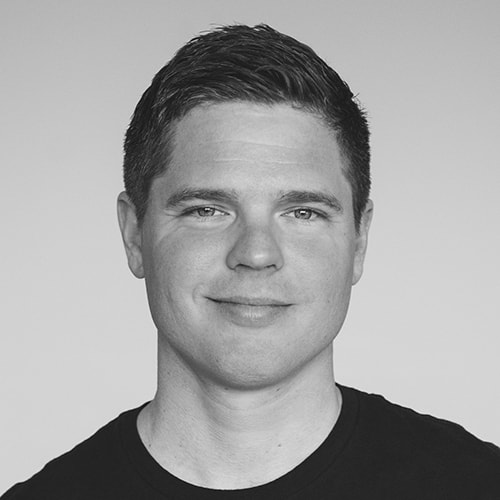

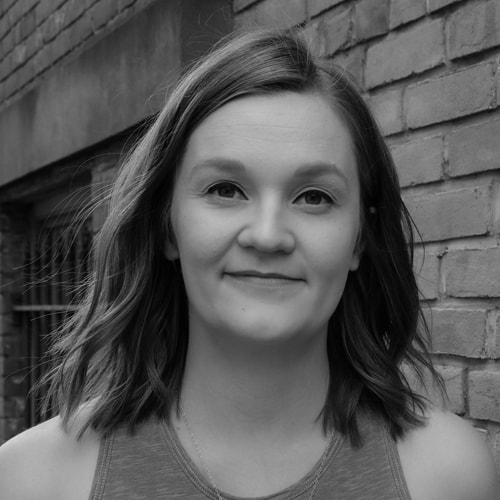

Scrappy vs. Crappy
Henrik Mattsson, CEO, Lookback, Matt Gallivan, Research Manager, Airbnb, Sara Belt, Director of Product Insights, Spotify, and Monal Chokshi, Head of UX Research, Lyft
Talk details
Scrappy vs. Crappy
Henrik Mattsson, CEO, Lookback, Matt Gallivan, Research Manager, Airbnb, Sara Belt, Director of Product Insights, Spotify, and Monal Chokshi, Head of UX Research, Lyft




Talk abstract
While it’s growing, the UX Research discipline is comprised of people with varying levels of experience, operating in a wide range of styles. But one thing we all struggle with is how to balance two demands of us as experts: to move quickly and to produce high quality work. How do we find that balance? In this panel, we’ll discuss:
- - What are the tools researchers should use to determine the right balance between speed and rigor?
- - Org implications
- - Experience and expertise implications
- - Confidence level needed for a decision
- - Limitations and caveats-- do we sometimes caveat ourselves to death?
- - How should researchers balance the needs to protect the integrity of their work with the need to have healthy cross-functional relationships?
- - Who is responsible for establishing the guidelines and guardrails about what kind of research is “enough?”
Speaker Bio (Henrik)
Henrik is CEO at Lookback. He was born and raised in Sweden, where he started his career in academia, but has lived in Canada since 2005. Shortly after finishing his PhD in economics he realized that it’s much more fun helping tech companies with strategy and change management. Ten years and 300 entrepreneurs of consulting work later he was looking for an opportunity to have more long-term impact at a startup with a meaningful mission. In 2015, Lookback came knocking and introduced Henrik to what UX research can do to product building and that was it. Now he spends his days with a wonderful team trying to support the UX revolution and the UX research community. When he is not working, he spends his time in Montréal or in the boreal forest with his wife and two kids.
Speaker Bio (Sara)
Sara Belt is a Director of Product Insights at Spotify. With a background in engineering and human-computer interaction, she leads a team of user researchers and data scientists that powers Spotify’s product development for the artist and music industry community; helping artists grow their audience, express their creativity, and thrive. Prior to Spotify, Sara held research positions at Microsoft, HERE Technologies, and Nokia, exploring topics ranging from the future of productivity to how people navigate the world with maps.
Speaker Bio (Matt)
Matt Gallivan is a Sr. Research Manager at Airbnb, where he leads Experience Research for the home rentals business. Matt has been doing research or leading research teams at agency, media, and technology companies for nearly twenty years. He was the keynote speaker at the inaugural UX Research Conference in 2018 and emceed the Leadership Track at the conference in 2019. Matt used to tweet a lot about research, but Twitter makes him sad, so he doesn’t do that so much anymore. He lives in San Francisco with his wife and two young kids.
Speaker Bio (Monal)
Most recently, Monal was the Head of UX Research at Lyft, where she was the company’s first researcher. She grew the team to 30, including quantitative UX research, design strategy, and research operations.
Monal has been building and leading UX teams for over 8 years, including teams at Intuit and SoundCloud. Prior to that, she worked as a UX Researcher and Product Designer across a range of large companies and startups, dating back to the dot-com era.
Monal has an MS in Cognitive Science from UC San Diego, where she focused on methods of cognitive ethnography, studying people in real-life settings in order to determine how to best design everyday technology. Monal earned her BS from Stanford in Symbolic Systems, a Computer Science focused major complemented by courses in Psychology, Philosophy, and Linguistics. For both of her degrees, her concentration was Human-Computer Interaction.
A former national champion cross country and track & field runner, Monal still enjoys staying active outdoors, as well as wildlife spotting and travel with her husband. She works and lives in San Francisco.

The Power of Synthesis
Etienne Fang, UX Research + Strategy leader
Talk details
The Power of Synthesis
Etienne Fang, UX Research + Strategy leader

Talk abstract
How can we, as UX Research leaders, help identify the greatest opportunities, embed in strategic business processes, and scale the impact of our insights? Empower your UX Research team by increasing influence through synthesis.
Learn about the Insight Sprint methodology Etienne developed for cross-area knowledge-sharing and synthesis that quickly aligns teams under a shared set of opportunities identified cross-functionally to drive clarity for organizations.
Speaker Bio
Etienne is a human-centered researcher and strategist passionate about people and the power of their stories to create new value. She has led UX Research teams at Uber, founded consumer strategy practices at Method Products and VF Corporation, and led Innovation Design at The Clorox Company. Etienne has guided strategic initiatives for brand, product, environmental and digital experiences for The Coca-Cola Company, Walmart, P&G, The Gap Inc., Toyota, Levi Strauss & Co., McDonald’s, Pfizer, and IBM.
Etienne is the founder of “Redefining Having It All" a non-profit organization that celebrates the beautiful diversity of women’s ambition globally through storytelling in support of female empowerment through education.
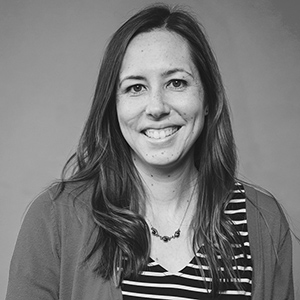
Level up the Influence and Impact of Research Insights with an Internal Marketing Plan
Patti Carlson, Director of UX Research, Mailchimp
Talk details
Level up the Influence and Impact of Research Insights with an Internal Marketing Plan
Patti Carlson, Director of UX Research, Mailchimp

Talk abstract
Image. Branding. Content Marketing. What do any of these have to do with UX Research? When it comes to delivering high-impact, influential research findings, everything!Whether you are at the whiteboard or in the boardroom, marketing matters! In this talk, Patti Carlson will share how her UX Research team took a creative approach to internal marketing of UX Research insights and started to exert more influence over design, product strategy, and even organizational strategy. She'll walk you through how to create your own marketing plan and identify your:
- - Marketing goals
- - Audience
- - Strategies & tactics
- - Marketing channels
By the end of the talk, you'll know exactly how to Always Be Closing!
Speaker Bio
Patti Carlson is the Director of UX Research at Mailchimp, a leading marketing platform for small businesses. With an extensive background in UX Research and Psychology, she guides ateam of researchers and research leaders in using mixed methods to understand customer needs and help guide product teams toward effective solutions. She thrives on incorporating unconventional techniques to inspire and motivate her team, whether that’s borrowing lessons from improv to develop storytelling skills, or incorporating marketing and sales strategies to “sell” research insights, Patti is constantly seeking to reinvent the practice of UX Research. When she’s not nerding out over Research, you can catch her hiking with her family or running through her Atlanta neighborhood with her two spoiled rescue dogs, Bowie and Roscoe.
Keynotes
FRIDAY JUNE 26, 2020. 11:00AM - 5:00PM EST.
As researchers we have a lot in common: a natural curiosity, the ability to build relationships with others, and the drive to think critically about new ideas. At the same time, we have varied experiences, interests, and professional goals that make us all unique.
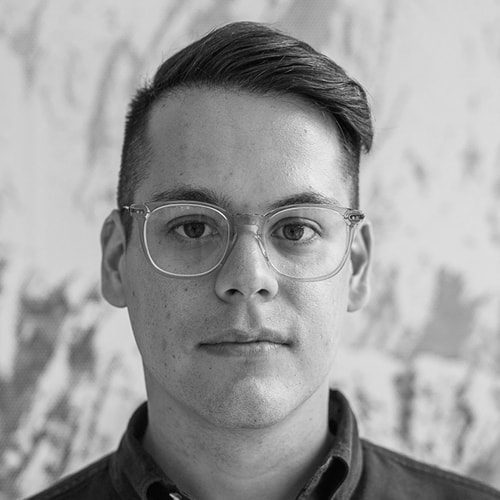
You Are Not Your Research Report
Behzod Sirjani, Founder, Yet Another Studio
Talk details
You Are Not Your Research Report
Behzod Sirjani, Head of Research and Analytics Operations, Slack

Talk abstract
Although research as a discipline has gained awareness in recent years, many practitioners lament that in most companies, research still does not have "a seat at the table." In this talk, Behzod argues that the failure to develop credibility and gain broader influence is due to an over-reliance on a single kind of artifact - the research report.
While reports can be valuable, they are far from the most important contributions that researcher make to a company - which is building a culture and practice of curiosity and empathy in every part of an organization. In this talk, Behzod makes a case for a broader view of how researchers must contribute to a company and a more open and inclusive way to practice research. He highlights the challenges that come from having researchers' main role being that of someone who "provides insights" and encourages the audience to imagine a world where we are trying to be teachers and librarians, not oracles.
This talk is an invitation to critically examine research practices and make the shift from "conducting research" to "curating and sharing knowledge," which is a small, but important, shift that can pay huge dividends for whomever wants to embrace it.
Speaker Bio
Behzod Sirjani studies how people work and work together. He is currently the Head of Operations for Research and Analytics at Slack, where he supports a team of people who help make work simpler, more pleasant, and more productive for Slack employees. Behzod also cares deeply about sharing and teaching the practice of research, both through and outside of his work at Slack.
Prior to Slack, Behzod spent 4 years at Facebook working on business tools, video products, and hardware, where he also co-created and led a mentorship program for junior researchers. Behzod has experience conducting and teaching about research in consumer and enterprise settings in North America, Europe, and Asia.

From Research Projects to Research Programs: How strong programs keep us on track
Rannie Teodoro, Head of Research, Thumbtack
Talk details
From Research Projects to Research Programs: How strong programs keep us on track
Rannie Teodaro, Head of Research, Thumbtack

Talk abstract
Researchers are producing studies at a faster pace now more than ever. However, instead of deliberately building upon existing knowledge and filling in gaps, teams are pressured into pursuing “quantity” over “quality” in their projects and rush to validate new hypotheses over informing ongoing visions. This sometimes means hopping from “scrappy” project to project and trading off opportunities to refine and build in-depth understanding of a problem space. This talk will cover the distinctions between research projects and programs, the role projects play in building immediate success and long-term confidence, and the benefits of systematic program development and long-term evaluation.
Speaker Bio
Rannie Teodoro, Ph.D., is the Head of Research at Thumbtack, an online marketplace that matches customers with local service professionals. Rannie started off her career in academia studying health and information-seeking behaviors and later transitioned into tech when she landed a job at Facebook. Today, she manages a team of researchers and category strategists who support end-to-end product development and operations. Her work has informed strategies for news-based platforms, search products, local services, and emerging markets. Rannie loves studying the intersections of community engagement, behavior change, and communication technologies.

The Missing Persona: Tapping into our self
Kacie Wise, Head of Experience, Lookback
Talk details
The Missing Persona: Tapping into our self
Kacie Wise, Head of Experience, Lookback

Talk abstract
As qualitative researchers we ask thoughtful, open questions, we build trust, we make connections, and we get to the heart of who our customers are through expert inquiry. We do this so naturally with others, but aren’t employing the same methods and rigor to understanding who we are. In essence, we possess the toolkit inside of ourselves to figure out how to make ourselves happy and fulfilled, but we’re not fully leveraging it.
What if we took ourselves through the exercises of understanding our own needs and pain points and created artifacts for the most important stakeholders — ourselves? In this talk, we’ll cover how we can leverage our existing methods, artifacts, and skills to make sure we’re set up to be the most fulfilled we can be at work.
Speaker Bio
Understanding people is what has always inspired Kacie — bringing utility, joy, and the perfectly unexpected. In her first job, as a sighted guide for the blind, she helped young adults apartment hunt. As each person climbed one-by-one inside the bathtub to determine if it was the right size, she witnessed and empathized with their individual approach.
Through college, she was a shoe dog at Nordstrom. The customer service training had her consider every touchpoint of the buying experience … but the real value for her was making people feel beautiful, confident and seen. She designed the ultimate corporate events and weddings — considering every single detail — to make those moments for everyone attending memorable and lasting.
Whether it’s the partner experience at Starbucks, how to inspire a life reimagined with AARP, or considering buyer and the seller journeys, it’s not only responding to what people need, but considering what else then could happen to improve an overall experience. People want to share their voice and they want to feel valued. That’s why Kacie is in UX Research.

Personas are dead. Long live personas!
Amber Westerholm-Smyth, Sr. User Researcher, Ministry of Justice UK and Carolina Pizatto, Service Designer, Ministry of Justice UK
Talk details
Personas are dead. Long live personas!
Amber Westerholm-Smyth, Sr. User Researcher, Ministry of Justice UK and Carolina Pizatto, Service Designer, Ministry of Justice UK

Talk abstract
Personas - you've probably got some. They're probably beautifully illustrated. They're probably full of carefully crafted content and titled with catchy, memorable names. You probably spent a lot of time building them but you also probably still think they aren't very helpful. And we agree.
That is because personas are dead. Savvy Susan doesn't tell us about a complex human. That photo, age and tagline? They reinforce bias, they don't break it down. Those snappy one-liners don't add depth, they create shallow understanding. Your personas probably set out to build empathy, but really they have just become shortcuts to stereotypes.
For us at the Ministry of Justice, these shortcuts have severe consequences. 69% of people who leave prison in the UK re-offend in less than 12 months, costing British society 18.9 billion pounds a year. Our personas couldn't continue to suck.
For 6 months, a small team of user researchers and a designer gained unparalleled access to prisons across England and Wales. We set out to unlock the real potential of personas, working from the bottom up, with experts across fields and redesigning the whole process. In this talk, the team will show you how we took on the challenge of breaking one of societies' most ingrained and damaging stereotypes by rebuilding one of user researchers' oldest tools.
Speaker Bio (Amber)
Amber is a Senior User Researcher at the Ministry of Justice in England and Wales. For the past two years she has spent most of her days travelling the length and breadth of England and Wales conducting user research inside prisons with prisoners and those that work with them. These research findings directly shape the development of government digital services and policies for people in custody. Amber was formally trained at the Government Digital Service where she worked on payment, notification and cloud hosting tools to standardise government digital services. Prior to this, Amber worked in the private sector as a user researcher in the data & transport sector. Amber has a masters degree from Oxford University in the Social Science of the Internet from the Oxford Internet Institute. As a digital ethnographer, she is insatiably curious and strongly believes digital is the future but not always the complete answer.
Speaker Bio (Carolina)
Carolina is a Service Designer at the Ministry of Justice in England and Wales. She works closely with researchers to run discoveries, test digital prototypes and encourage policy teams to embed user-centred design into their processes. For the last two years, Carolina has been designing with vulnerable user groups, including women, children and men in prison. She has experience at the Cabinet Office’s Policy Lab experimenting with new ways of working in the UK Government, and has also worked with Design Thinking and Design Research for the private sector. She graduated in Brazil as a graphic designer, has an additional degree in Business Management and was a visiting student at Cambridge School of Art.
UXR in Latin America: The duty to build a community
Darinka Guillen Buendia, UX Research Manager, Banco Santander
Talk details
UXR in Latin America: The duty to build a community
Darinka Guillen Buendia, UX Research Manager, Banco Santander
Talk abstract
While she was developing her UX research skills, Darinka noticed she was facing a number of significant cultural, contextual, and behavioural barriers to her growth. As she spoke with other researchers in Latin America she learned that her experience was shared by many other aspiring researchers, and wanted to find a way to help the whole community grow together.
In 2018, Darinka started the UXRMX podcast and community to connect researchers in Latin America through events and content. Over the last two years, the UXRMX podcast has hit over 10,000 listens and interviewed more than 30 researchers and experts from other disciplines.
In this talk, Darinka will walk you through how she built the research community in Latin America and encourage you to take on your own research community building initiative wherever in the world you’re from.
Speaker Bio
Darinka Buendía is a psychologist and UX Researcher, passionate about research, design, and collaboration. Darinka is currently building a community called UXRMX, and podcasting about her experience building knowledge and connecting researchers in Latin America.
Rebranding With Research
Nicky DePaul, Research Lead, Brex and Kira Klaas, Director of Brand, Brex
Talk details
Rebranding With Research
Nicky DePaul, Research Lead, Brex and Kira Klaas, Director of Brand, Brex
Talk abstract
At some point, every company rebrands. In almost every case, the process is controversial, convoluted, and long. Everyone has an opinion, but often struggle to back up comments like “I don’t like that” or “I think blue is better than green”.
The most successful brands tell a story that resonates with their customers… So why is the customer voice so rarely included in rebranding work? And if teams are lacking data to back up opinions, why isn’t Research in the room?
“Rebranding with Research” offers a deep dive into the strategy, methods, and stakeholder management the Brex Research and Brand teams used to keep user experience at the center of rebranding decisions.
Speaker Bio (Nicky)
Nicky leads Research at Brex, where he asks “why?” a lot. Mostly to customers and people who could someday become customers. Also to product managers, marketers, designers, executives, salespeople, engineers, customer support reps...everyone he works with.
He’s a strong believer that formal Research teams should support the entire company, not just Product and Design, to raise the bar for customer-focused decision making. He’s motivated to empower learning and better decision making by building systems that make it easy for anyone in the company to talk to customers and test assumptions.
A graduate of The Johns Hopkins University, Nicky has worked in a range of fields and positions, from corporate lobbyist to first employee at a startup (it failed). He discovered user research by running usability tests (though he didn’t know that term at the time) with students in a UCLA dorm, and carried his passion through business roles at Square and Brex before moving into Research full time.
He encourages anyone reading this to contact him directly to discuss any and all topics related to research. Learning from each other is the best way to grow! So ask him why he loves asking why.
Speaker Bio (Kira)
Kira Klaas is Brex’s Director of Brand, where she leads a team of marketers and designers focused on telling the story of what it means to dream big in financial services. She views research as key to her team’s success, and is a strong proponent of integrating Brand and Research teams from the outset.
Kira’s career has spanned a range of marketing functions, from social media strategy to product and content marketing at companies including Gusto and Kiva. Stepping into Brand leadership at Brex has allowed her to put her particular passion for storytelling into practice, with the voice of the customer at the center.
In Kira’s view, branding is what makes up for the difference between advertising and advocacy, and research helps bridge that gap. She’d love to hear from anyone interested in how her team uses research findings to make better decisions, and from anyone curious about brand more generally.

Screenomics: The fragmentation of digital life and what it means for UX research
Leo Yeykelis, Head of UX Research, VMware
Talk details
Screenomics: The fragmentation of digital life and what it means for UX research
Leo Yeykelis, Head of UX Research, VMware

Talk abstract
In today’s interconnected digital media environment, people multitask between disparate types of digital experiences such as laptops, tablets, TVs, phones, email, social media, news, shopping, and food delivery. This rapid switching behavior, as quickly as once every 11 seconds, has consequences for how people interact with and feel about products, and therefore impacts the design recommendations UX researchers make.
For UX researchers to glean effective insights into how people interact with media in real life settings, researchers need to fully understand an individual’s entire thread of media experience. This includes taking into consideration the pace of switching, the content consumed before, during, and after the interface being studied, and the different devices used to interact with the interface. Screenomics, a framework developed by Stanford University and others to collect, analyze, and make sense of this data will be discussed, including how practitioners can take this knowledge and apply it to their current research.
Speaker Bio
Leo directs research to understand how psychological processes and human-computer interaction paradigms affect product design. He received his PhD in Communication at Stanford University, is a Forbes 30 Under 30 Honoree in Enterprise Technology, and is part of a multi-institutional effort at Stanford studying digital fragmentation in daily life. Leo is currently the Head of User Research at VMware, leading a team of mixed-methods researchers in conducting strategic research in the cloud infrastructure space. Previously, he led quantitative UX research at Waymo on the design of self-driving cars, established the UX research practice at Vine, designed mixed human-robot interfaces at NASA for life support systems on the International Space Station, and ran the largest ever quantitative study of Firefox users at Mozilla.

Consensus through Convergence: Building compelling narratives with mixed methods research
Mel Banyard, Design Researcher, The Canadian Digital Service and Jeana Frost, Sr. Quantitative Design Researcher, The Canadian Digital Service
Talk details
Consensus through Convergence: Building compelling narratives with mixed methods research
Mel Banyard, Design Researcher, The Canadian Digital Service and Jeana Frost, Sr. Quantitative Design Researcher, The Canadian Digital Service

Talk abstract
How can design teams build compelling arguments that speak to decision-maker’s need for actionable data? There’s often a divide between what constitutes evidence for many stakeholders and what researchers routinely provide.
Let’s address this disconnect by connecting data. By blending the strengths of both qualitative and quantitative insights, UX Researchers can collect converging evidence across multiple studies to build a narrative that is rich, nuanced, and memorable for a diverse panel of decision-makers. In doing so, your research findings can present both a deeper understanding of a problem, and gauge the future impact of the resulting service.
This is the story of how a small but mighty team within the Government of Canada partnered with the Royal Canadian Mounted Police to design a National service for victims of cybercrime.
Two researchers will describe their journey in advocating for a new type of victim within an institution with 100 years of policing under its belt. Learn how their team transformed a policing tool into a psychologically safe space for victims across the country.
Speaker Bio (Mel)
Mel began her career as a designer with a focus on accessibility and inclusion. During her Masters in Science & Technology Studies, she developed and tested participatory design workshops with nonverbal children and their communities. Since joining the Canadian Digital Service, she’s ensured that the voices of Canada’s vulnerable populations are heard, even within the largest of bureaucracies. Her philosophy and approach to her work is to bring people along to research and analysis sessions, with the goal of instilling the values of ethical research across the Government of Canada.
Speaker Bio (Jeana)
Jeana Frost introduced quantitative methods to the Canadian Digital Service’s research practice upon her arrival earlier this year. Her knowledge and ability to seamlessly collaborate with qualitative researchers has been foundational in merging quantitative methods including experiments, surveys and statistical analysis within delivery teams’ existing workflows. Jeana has over 15 years of experience in design and evaluation research in digital health and communication and is pleased to apply this knowledge to digital government. In addition to her work experience, Jeana holds a PhD from the Media Lab at MIT, a PostDoc in Behavioural Informatics from Harvard Medical School, and a B.A in Mathematics & Psychology from Columbia University.

Escape Velocity: Finding our path in the next decade
Molly Stevens, Director of User Experience Research, Booking.com
Talk details
Escape Velocity: Finding our path in the next decade
Molly Stevens, Director of User Experience Research, Booking.com

Talk abstract
In today’s organizations, UXR faces a variety of extreme variations that challenge the definitions and foundations of our work. Align with Design, Data Science, Marketing or Product? Specialize in a few skills, or be a jack of all trades? Hire only people with advanced degrees, or teach anyone the basics? The impacts of which direction is chosen is often not well understood - or reflected on. In addition, the organic evolution of these extremes are eroding our ability to function well in many organizations -- and could threaten the science of the work that we do. In this talk, I’ll argue that we need to take deliberate control over the destiny of our function -- ensuring that we continue to evolve and grow.
Speaker Bio
Molly has 20+ years experience in understanding the needs of users in a variety of domains around the globe. She looks to build diverse cross-functional teams that can deeply understand the similarities and differences in user needs and behaviors. She is currently the Director of UX Research at Booking.com.

Research on the Frontlines: Fears, risks, and resilience in unlikely places
Darya J Pilram, Sr. UX Researcher, Twitter
Talk details
Research on the Frontlines: Fears, risks, and resilience in unlikely places
Darya J Pilram, Sr. UX Researcher, Twitter

Talk abstract
How do we do the right thing when it's really hard? And how hard can it get? What do we do when people listen to us, and when they don't -- how do we prepare for and cope with the consequences?
In this talk, Darya will take you to the frontlines of conflict in Afghanistan, the human security elements of the gig economy, and the current threats to U.S. democracy. She will talk about her experience of forging research in unlikely places, from a Navy ship at sea to the sands of Mogadishu, the back of a car in Saudi Arabia to the urban conflicts of South Africa, Bogota, and Sao Paulo.
The stories will unravel the assumptions we have about the work we do, challenging listeners to think critically about impossible decisions and resilience when faced with hard choices in harsh places. This will be an honest conversation about the impossibilities of doing the right thing every time and the difficult, isolating, and very fundamental reality of moving forward.
Speaker Bio
In 2019, Darya joined Twitter's inaugural social science research team to lead policy research at the intersection of elections, disinformation, and well-being.
Prior to her transition to tech, Darya was an anthropologist with the U.S. government for 11 years, most recently posted to Nairobi, Kenya and Mogadishu, Somalia as the first full-time counterterrorism programs coordinator with US Mission Somalia. In 2017, she transitioned to tech, building Uber's UX safety research about human security dynamics in 17 countries and 43 cities. This led to a fellowship with the Marshall Memorial Fellowship across Germany, Italy, Ukraine, and France to understand European perspectives on tech governance, the impact of disinformation on refugee resettlement, and nationalist rhetoric on regional elections. She earned her MPH - Global Health from the George Washington University and a B.A. in International Studies and Anthropology at the University of California, San Diego. When she's not out in the field, Darya loves sailing and flying with her family and traveling to new places in search of local craft beer, kitchen gadgets, and misadventures with her twin sister.